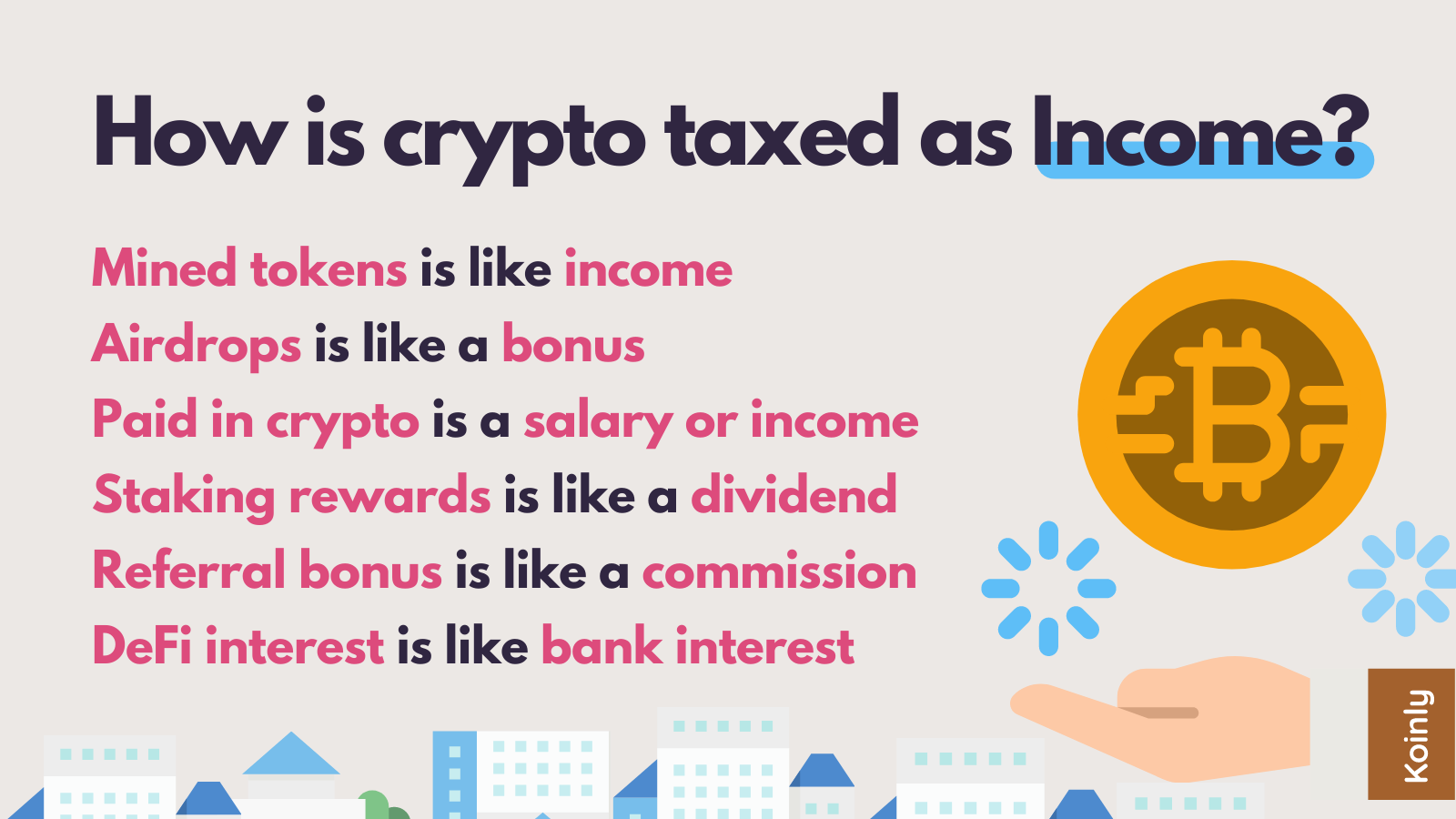Crypto Tax: The Accountant's Guide
Want to understand cryptocurrency tax? The theory behind crypto tax is not as cryptic as you might think. That's because most countries use familiar tax laws on cryptocurrencies like Bitcoin. In this guide we'll take you through the key facts, followed by more in-depth guidance for a range of countries.
Want to skip ahead? Check out our updated accountant's crypto tax guides for:

Crypto is an asset
Instead of thinking of crypto as a currency, a more accurate label would be a crypto asset, as ‘asset’ is the magic key that unlocks the crypto tax riddle.
An asset is any resource that you own, with economic value that's expected to provide a future return, like shares, investment property, and collectibles - and cryptocurrency is lumped in the very same basket. Therefore, think of crypto as property and an asset for tax purposes.
This is the case in most countries around the world, El Salvador being a notable exemption.

Capital Gains Tax
Just as shares and investment property disposals attract Capital Gains Tax, so too does cryptocurrency.
So when it comes to calculating the tax owed on crypto gains, all of the usual considerations apply - you'll need to know the cost base of the crypto asset, the price of the crypto at acquisition and disposal, and convert all figures into your client's local fiat currency. Depending on your country's tax rules, a crypto capital gain, or capital loss, could be triggered by 4 disposals:
Selling crypto like Bitcoin, into any fiat currency, like USD.
Swapping crypto for crypto, like Bitcoin to Ether.
Using crypto to buy goods or services.
Giving crypto as a gift, depending on your country.
Capital Gains Tax free threshold
In countries where a Capital Gains Tax free threshold applies, crypto gains should get the same treatment. For example, in the UK all taxpayers receive a £12,300 tax free allowance.
Capital Gains Tax discount
In countries where a capital gains discount applies for holding, crypto is usually afforded the same discount on disposal.
USA: The IRS applies a lower Capital Gains Tax rate of 15% or 20% for assets held for more than a year.
Australia: The ATO gives a 50% discount on capital gains from assets held for more than a year.
Germany: German taxpayers who hold crypto for a year or more pay no tax on profits from disposals.

Income Tax
Just as income can originate from work or investments and be taxed under Income Tax, so too can crypto income. In terms of cryptocurrency, the parallels look roughly like this:
Getting paid in crypto - like a salary.
Staking rewards - like dividends.
Mining tokens - like income.
Airdrops - like bonuses.
DeFi interest - like bank account interest.
Referral bonus - like commission.
Buying crypto is tax free
Under most tax laws, the purchase of an asset for an investment is tax free, bar any applicable goods and services tax/value added tax. Typically, your crypto investor clients won't pay tax on their cryptocurrency purchases - provided they're buying with fiat currency.
Likewise, if you are the recipient of gifted crypto, there is no tax to pay - although there are some tax offices that don't follow this general rule, so do check the rules for your location.
In each of these cases, while crypto might be tax free on the way in, your clients will very likely pay Capital Gains Tax on the way out.
Clients could pay both Income and Capital Gains Tax
How crypto is received, and disposed of, are seen as two separate events. Let’s imagine your client receives crypto via an airdrop in January, and that the coins are worth $50. This $50 is income and will form part of their total taxable income. Come June, they decided to sell their airdropped coins for US dollars.
Those same coins are now worth $80. As they paid no fees in receiving the airdropped coins, the gain is a straightforward calculation of $80 - $50 = $30. On disposal, they need to pay Capital Gains Tax on that $30 profit, even though they're paying Income Tax on the original $50.
Cost basis
As you know, a cost basis is the amount you spend to acquire an asset, including the purchase price, transaction fees, brokerage commissions, and any other relevant cost. As an asset, crypto gets handled in the same way. To calculate crypto cost basis, we simple take the purchase price plus fees (and divide by quantity if applicable). If a client otherwise acquired crypto - like through an airdrop - use the fair market value of the crypto in their local currency on the day they received it instead.
Of course, most clients aren't dealing with single units of cryptocurrency - if only it were that simple! The majority hold multiple assets and as such will need to follow an allowable accounting method to calculate their cost basis. Permissible accounting methods vary depending on where you live, but some of the most common include:
Average Cost Basis method
The Average Cost Basis (ACB) is the simplest of all accounting methods. The Average Cost Basis is calculated as the total amount paid to purchase the cryptocurrency divided by the total number of cryptocurrencies held.
Both Canada and the UK have their own take on the ACB method for crypto accounting - the CRA has the Adjusted Cost Basis Method, while the UK has the Share Pooling Cost Basis Method. In the US, however, the Internal Revenue Service (IRS) does not allow investors to use ACB to arrive at the cost of their holdings, crypto or otherwise.
First In, First Out method
Crypto cost basis is calculated on the assumption that the first crypto sold is the first crypto bought. Widely used, benefits long-term holdings & a bull market. First In, First Out (FIFO) is the preferred accounting method in Australia, the USA, and many countries in Europe.
Last In, First Out method
Crypto cost basis is calculated on the assumption that the first crypto sold is the last crypto bought. Results in lower taxable profits, better suited to crypto businesses.
Highest In, First Out method
The cost basis for a sale is the cost basis of the most expensive crypto that you acquired. This means that crypto assets that have the highest cost basis are the ones that are first sold. As capital gains are equal to total proceeds less the cost basis, a larger cost basis means your client's capital gains are minimized.
Crypto tax in the United States
Cryptocurrency is viewed as property and is taxed in the US as either Capital Gains Tax or Income Tax. You won't pay tax when you buy crypto, hold crypto, or move your crypto between wallets. Gifting crypto is tax-free, provided you've not hit the lifetime gift exclusion. For gifts valued at more than $17,000, donors may have to file a Gift Tax Return Form 709. Similarly, donations are not subject to Capital Gains Tax, provided the donation is made to a qualified charitable organization.
How much will you pay?
In the United States, the amount of tax you pay on crypto gains depends on how long you’ve held your assets, your personal Federal Capital Gains Tax rate, and the Federal Income Tax bracket you're in.
Tax breaks: If you earned less than $41,675 total annual income - including your crypto profits - you'll pay no Capital Gains Tax on long-term gains.
Short-term capital gains: Any gain made from a crypto asset held for less than a year is taxed at the same rate as your Federal Income Tax bracket. You could pay between 10% to 37% tax.
Long-term capital gains: Any gains or losses made from a crypto asset held for longer than a year incur a much lower 0%, 15%, or 20% tax depending on individual or combined marital income.
Losses: You can offset capital losses against capital gains. If your capital losses exceed your capital gains, you can offset your capital losses against your income for the year - up to a maximum of $3,000. If your net capital loss is more than this limit, you can carry the loss forward indefinitely to future tax years.
Cost basis
The default cost basis method used in the States in Spec ID. If investors cannot provide detailed records to utilize the Spec ID cost basis method, the default is FIFO. Investors may also be able to use HIFO and LIFO, as long as they provide records showing they followed that cost basis method.
How to report Capital Gains Tax
Fill in Form 8949 and add it to Form Schedule D: Form 8949 is the specific tax form for reporting crypto capital gains and losses. The Schedule D form is the main tax form for reporting overall capital gains and losses.
How to report Income Tax
Fill in Schedule 1 Form 1040: Any crypto earned as an income needs to be added to Schedule 1 Form 1040.
Read next: Accountant's USA Crypto Tax Guide
Crypto tax in the United Kingdom
Like most countries around the world, the UK does not treat cryptocurrency as currency or money. Instead, the HMRC views cryptocurrency as property and it is taxed as either Capital Gains Tax or Income Tax. You won't pay tax when you buy crypto, hold crypto, or move it between wallets. Cryptocurrency gifts to your spouse are also non-taxed and can effectively allow you to double your tax-free allowance in a given tax year. Donations to a registered charity are also tax-free.
How much will you pay?
In the United Kingdom, the amount of capital gains tax owed on crypto depends on how long you’ve held your assets, and on your Income Tax rate.
Tax breaks: As a UK resident you only have to pay Capital Gains Tax on your overall gains above your tax-free allowance of £12,300, known as the annual exempt amount. In addition, the standard Personal Allowance is £12,570, which is the amount of income you do not have to pay tax on.
Short-term capital gains: Your CGT tax rate will depend on your Income Tax band. The basic Capital Gains Tax rate for those earning less than £50,270 is 10%, while the higher rate for those earning more than £50,271 is 20%. This is based on total annual income - including your crypto gains and regular earnings.
Long-term capital gains: Your long-term capital gains are taxed at the same rate as short-term.
Losses: Carry forward registered losses indefinitely, but you must register losses within 4 years.
Cost basis
To avoid investors selling assets at a loss and repurchasing them shortly after to reduce tax liability, the HRMC requires share pool accounting when calculating the cost basis of coin disposal. These can be broken down into three simple rules: Same Day Rule, Bed and Breakfasting Rule, and Section 104 Pool.
How to report Capital Gains and Income Tax
All taxable assets are included in the same Self Assessment Tax Return form in the UK.
Read next: Accountant's UK Crypto Tax Guide
Crypto tax in Australia
In Australia, cryptocurrency is viewed a property by the ATO and is taxed as either Capital Gains Tax or Income Tax. You won't pay tax when you buy crypto, hold crypto, or move it between wallets. Donations may also be tax-free provided the recipient is a deductible gift recipient.
How much will you pay?
In Australia, the amount of Capital Gains Tax owed on crypto depends on how long you’ve held your assets and your Income Tax bracket.
Tax-breaks: There are no specific allowances for Capital Gains Tax in Australia. However, if your total income is less than $18,200 a year, you won't pay any Income or Capital Gains Tax.
Short-term capital gains: Any gains or losses made from a crypto asset held less than a year are taxed at the same rate as whatever Income Tax bracket you’re in.
Long-term capital gains: Any gains from a crypto asset held for longer than a year receives a 50% Capital Gains Tax discount, so you'll only pay Capital Gains Tax on half of any capital gain from assets held more than a year.
Losses: Losses can be carried forward and deducted from capital gains in later years. There is no time limit on how long you can carry forward a net capital loss.
Cost basis
The default cost basis method for investors in Australian in FIFO, however LIFO can also be used. Traders may only use FIFO.
How to report Capital Gains and Income Tax
File a Tax Return for Individuals Form: Capital Gains Tax and Income Tax are both reported under the same Individual Tax Return Form. You can do this online with MyTax. You can also watch our how to file with myTax guide.
Read next: Accountant's Australia Crypto Tax Guide
Reporting crypto
Cryptocurrency tax is a lot easier to understand once the connection to capital gains and income tax is made.
Unfortunately, that's where the simplicity ends. Just like with regular assets and income, taxpayers need to keep records of dates and details. Except when it comes to crypto, you're also throwing currency conversions into the mix, along with historic spot prices for the crypto stock at the date of acquisition and date of disposal.
Whereas a spreadsheet might do the trick for tracking regular shares, most tax offices recommend using third-party software to help meet the record-keeping obligations and work out your client's crypto tax.
Koinly's Accountant Platform is just that, a crypto tax calculator that imports all your clients' crypto trade data to figure out their taxable totals - in line with the requirements of the IRS, HMRC, ATO, and other tax offices.




